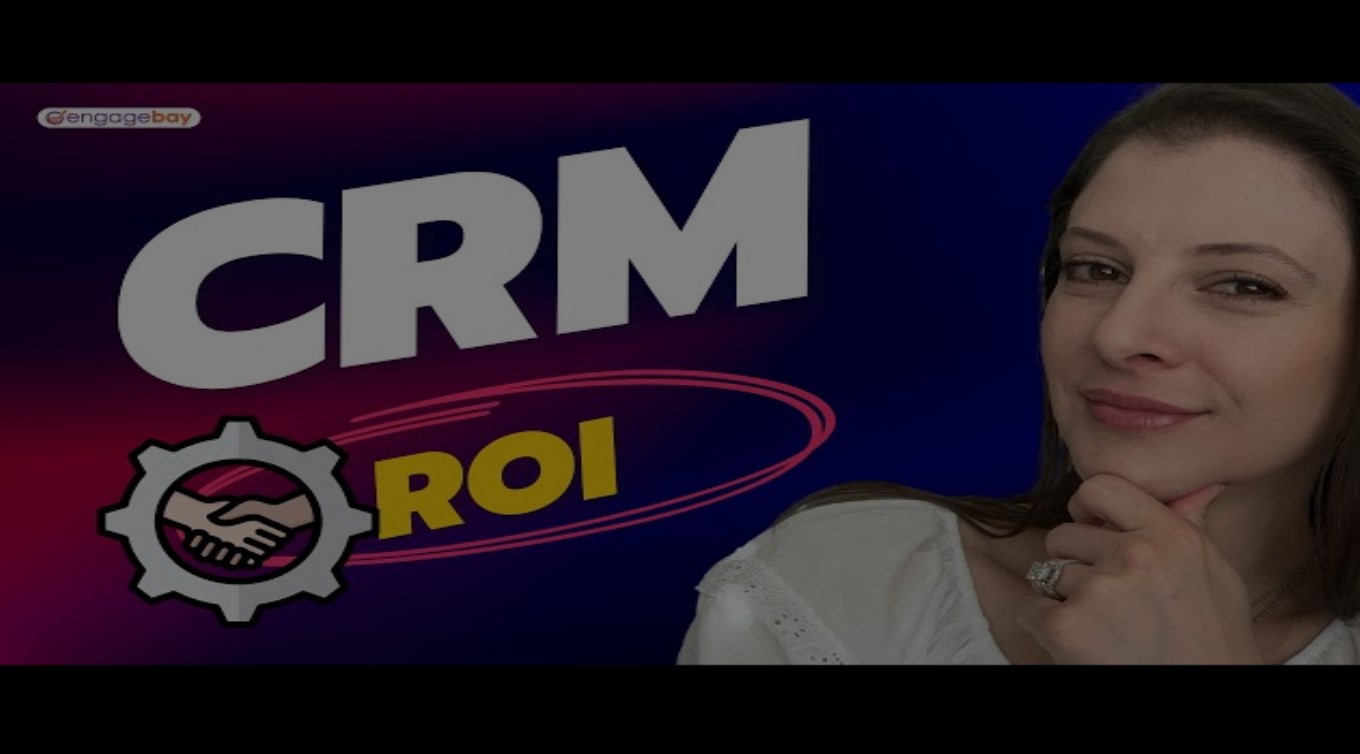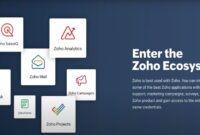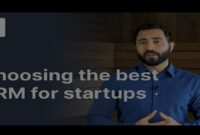Pipeline CRM pricing is the cost of employing pipeline CRM software. This CRM software lets firms track and manage potential clients through sales pipelines. Pipeline CRM pricing depends on software features, user count, and business size.
Businesses of all sizes can benefit from pipeline CRM software. It helps firms enhance sales by showing their sales funnel and automating various sales management duties. Businesses save time and money and increase sales conversion rates.
There are many pipeline CRM software solutions, so examine features and pricing before choosing. Some common pipeline CRM software solutions are Salesforce, HubSpot, and Zoho CRM.
Explore the comprehensive Pipeline CRM Pricing Guide to optimize sales performance
Pipeline CRM pricing is a crucial factor for businesses to consider when selecting a CRM solution. Various aspects come into play when determining the cost of pipeline CRM software, including:
- Number of users
- Features and functionality
- Deployment type (cloud-based or on-premise)
- Contract length
- Support and training costs
- Integration with other business systems
Understanding these aspects is essential for businesses to make informed decisions about their pipeline CRM investment. For example, a business with a large sales team will need to consider the cost of purchasing licenses for multiple users. Additionally, businesses that require advanced features, such as sales forecasting and opportunity management, will need to factor in the cost of these add-ons. Deployment type also plays a role in pricing, with cloud-based CRM solutions typically being more affordable than on-premise solutions. Contract length and support costs are other important considerations, as businesses need to ensure they have the resources to maintain and support their CRM system over the long term.
Number of users
Pipeline CRM cost depends on user count. CRM software is usually paid per-user. The more users you have, the more your CRM software costs. Certain CRM software suppliers offer discounts for multiple license purchases. CRM software suppliers may also charge by user count. A CRM software supplier may offer a basic tier for firms with up to 10 users, a standard tier for 50 users, and an enterprise tier for more than 50 users.
- Facet 1: Cost implicationsUser count has major cost consequences. Large-user businesses must afford for more expensive CRM software. They will require more licenses and possibly a higher pricing tier. Businesses with many users may need to invest in additional training and support to guarantee everyone can utilize the CRM software.
- Facet 2: ScalabilityUser count affects CRM software scalability. Basic CRM software may work for small businesses. Large firms with many users will need scalable CRM software to meet their rising needs.
- Facet 3: CustomizationUser count affects customisation needs. Small businesses may be able to use CRM software with minimal customization possibilities. However, firms with many users may need a customizable CRM software solution.
- Facet 4: IntegrationNumber of users can also affect integration needs. Small businesses may be able to use CRM software with restricted integration options. However, firms with many users may need CRM software that integrates with ERP and marketing automation platforms.
In conclusion, the number of users is a key factor to consider when choosing a pipeline CRM software solution. Businesses should carefully consider the number of users they have and their future growth plans when making a decision.
Features and functionality
The features and functionality of a pipeline CRM software solution play a major role in determining its pricing. This is because the more features and functionality a CRM software solution has, the more valuable it is to businesses.
Some of the most common features and functionality of pipeline CRM software solutions include:
- Contact management
- Opportunity tracking
- Sales forecasting
- Marketing automation
- Customer service
Businesses should carefully consider the features and functionality they need when choosing a pipeline CRM software solution. This is because businesses will only get the value out of their CRM software solution if it has the features and functionality they need.
For example, a business that needs to track its sales pipeline and manage its customer relationships will need a CRM software solution that has contact management and opportunity tracking functionality. A business that needs to automate its marketing and sales processes will need a CRM software solution that has marketing automation and sales forecasting functionality.
The features and functionality of a pipeline CRM software solution can also impact the cost of implementation and training. This is because more complex CRM software solutions will require more time and resources to implement and train users on.
In conclusion, the features and functionality of a pipeline CRM software solution are key factors to consider when choosing a solution. Businesses should carefully consider the features and functionality they need and their budget when making a decision.
Deployment type (cloud-based or on-premise)
The deployment type of a pipeline CRM, whether cloud-based or on-premise, significantly influences its pricing. Cloud-based CRM solutions are typically priced on a subscription basis, with monthly or annual fees. On-premise CRM solutions, on the other hand, require a one-time upfront investment for software purchase and implementation, followed by ongoing maintenance and support costs.
- Facet 1: Cost implicationsCloud-based CRM solutions are generally more affordable for small businesses and startups, as they eliminate the need for upfront hardware and software purchases. On-premise CRM solutions, while requiring a higher initial investment, may be more cost-effective for large enterprises with complex customization and integration needs.
- Facet 2: ScalabilityCloud-based CRM solutions offer greater scalability than on-premise solutions. They can easily accommodate growing businesses and changing requirements without the need for additional hardware or infrastructure.
- Facet 3: SecurityBoth cloud-based and on-premise CRM solutions can provide robust security measures. However, cloud-based solutions may offer advantages in terms of automatic updates and centralized data storage, reducing the risk of data breaches.
- Facet 4: CustomizationOn-premise CRM solutions typically offer greater flexibility for customization to meet specific business requirements. Cloud-based solutions, while offering pre-built features and integrations, may have limitations in terms of deep customization.
In summary, the deployment type of a pipeline CRM, whether cloud-based or on-premise, has significant implications for its pricing and other aspects such as scalability, security, and customization. Businesses should carefully consider their specific needs and budget when choosing between these two deployment options.
Contract length
Contract length is an important consideration when it comes to pipeline CRM pricing. The length of the contract will determine how much you pay for the software and the level of support you receive.
Shorter contracts are typically more expensive than longer contracts. This is because the software provider needs to recoup its costs for developing and marketing the software. Longer contracts, on the other hand, allow the software provider to spread the cost of development over a longer period of time, which results in lower monthly payments.
The level of support you receive will also vary depending on the length of the contract. Shorter contracts typically come with less support, while longer contracts typically come with more support. This is because the software provider wants to ensure that you are satisfied with the software and that you continue to use it for the long term.
When choosing a contract length, you need to consider your budget and your needs. If you are on a tight budget, a shorter contract may be a better option. However, if you need a lot of support, a longer contract may be a better option.
Here are some tips for negotiating a contract length:
- Shop around and compare prices from different software providers.
- Be prepared to negotiate the price and the length of the contract.
- Make sure you understand the terms of the contract before you sign it.
By following these tips, you can ensure that you get the best possible deal on your pipeline CRM software.
Support and training costs
Support and training costs are important considerations when it comes to pipeline CRM pricing. The level of support and training you receive will impact the cost of your CRM software and the success of your implementation.
- Facet 1: Level of supportThe level of support you receive will vary depending on the CRM software provider you choose. Some providers offer basic support, while others offer more comprehensive support packages. The level of support you need will depend on the size of your organization and your technical expertise.
- Facet 2: Training costsTraining costs can also vary depending on the CRM software provider you choose. Some providers offer free training, while others charge a fee. The cost of training will depend on the number of users you have and the level of training you need.
- Facet 3: Impact on pricingThe level of support and training you receive can impact the cost of your CRM software. Providers that offer more comprehensive support and training packages typically charge more for their software. However, the cost of support and training can be worth it if it helps you to get the most out of your CRM software.
- Facet 4: Long-term implicationsThe level of support and training you receive can also have a long-term impact on your organization. If you have a strong support team, you will be able to quickly resolve any issues that arise with your CRM software. This can help you to avoid costly downtime and data loss.
By considering the level of support and training you need, you can make an informed decision about which CRM software provider to choose. This will help you to get the most out of your CRM software and achieve your business goals.
Integration with other business systems
Integration with other business systems is a key consideration when evaluating pipeline CRM pricing. The ability to seamlessly connect your CRM with other systems, such as ERP, marketing automation, and customer support software, can significantly enhance its value and drive better business outcomes. Here are several facets to consider:
- Improved data accuracy and consistencyIntegration eliminates manual data entry and reduces errors, ensuring that your CRM data is always up-to-date and consistent across all systems. This improves the reliability of your sales pipeline and forecasting.
- Enhanced productivity and efficiencyAutomated data sharing between systems streamlines processes and saves time. For example, integrating your CRM with your marketing automation system can automatically trigger marketing campaigns based on customer behavior, freeing up sales reps to focus on closing deals.
- Better customer experienceIntegration enables a more holistic view of the customer, providing sales reps with a complete history of interactions across different channels. This allows for personalized and proactive customer service, leading to increased satisfaction and loyalty.
- Reduced costsBy eliminating manual processes and improving efficiency, integration can reduce operational costs and free up resources for more strategic initiatives.
When evaluating pipeline CRM pricing, it’s important to consider the costs associated with integration. Some CRM providers offer seamless integration with their own suite of products, while others may require additional fees or third-party connectors for integration with external systems. By understanding the integration capabilities and costs, businesses can make informed decisions about which CRM solution best meets their needs and budget.
Conclusion
Pipeline CRM pricing is a multifaceted consideration that requires careful evaluation to optimize the value of your investment. Understanding the factors that influence pricing, such as the number of users, features, deployment type, and support needs, is essential for making informed decisions.
By considering the tips outlined in this article, businesses can navigate the pricing landscape effectively. Needs assessment, feature comparison, scalability evaluation, deployment choice, and support cost analysis are crucial steps in selecting a pipeline CRM solution that aligns with strategic objectives and budget constraints.
Investing in a pipeline CRM system can significantly enhance sales performance, increase efficiency, and improve customer relationships. By carefully considering pricing factors and optimizing your investment, businesses can harness the full potential of CRM technology to drive growth and success.



